Black Lives Matter protesters in NI will not be prosecuted
- Published
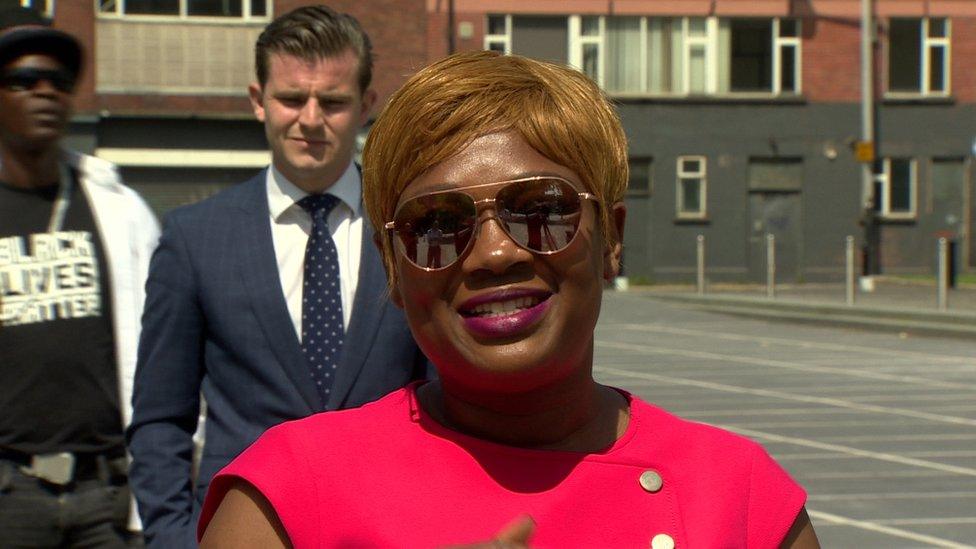
"We are celebrating the right to protest," said Sipho Sibanda
Fourteen people reported to Northern Ireland's Public Prosecution Service (PPS) after Black Lives Matter protests last year will not be prosecuted.
They were referred to the PPS for potential breaches of Covid-19 regulations in Belfast and Londonderry
Sipho Sibanda, who was part of the group, said a "weight had been lifted."
The Police Service of Northern Ireland (PSNI) has repeated the chief constable's apology for any "anger, upset and frustration caused".
The PPS said there was "no reasonable prospect of conviction for any offence".
Last year, the Police Ombudsman found justification in claims the handling of the Black Lives Matter protests by the PSNI was unfair and discriminatory.
A further complaint of race discrimination is being investigated.

Protesters gathered in Custom House Square in Belfast on 6 June last year
About 70 fines were issued at protests on 3 June in Belfast and on 6 June in Belfast and Derry.
'Complex issues'
PPS assistant director Martin Hardy said the test for prosecution had not been met.
"Decision-making on this file included consideration of a range of complex and novel legal issues arising from the coronavirus regulations in place at the time of these protests and relevant human rights considerations," he said.
"It also involved a careful analysis of the particular circumstances of these protests and the conduct of the individuals reported.
"It was concluded that, in respect of each of the 14 individuals reported, there was no reasonable prospect of conviction for any offence.
"This was on the basis that the evidence would allow the suspects to successfully raise the statutory defence of reasonable excuse."
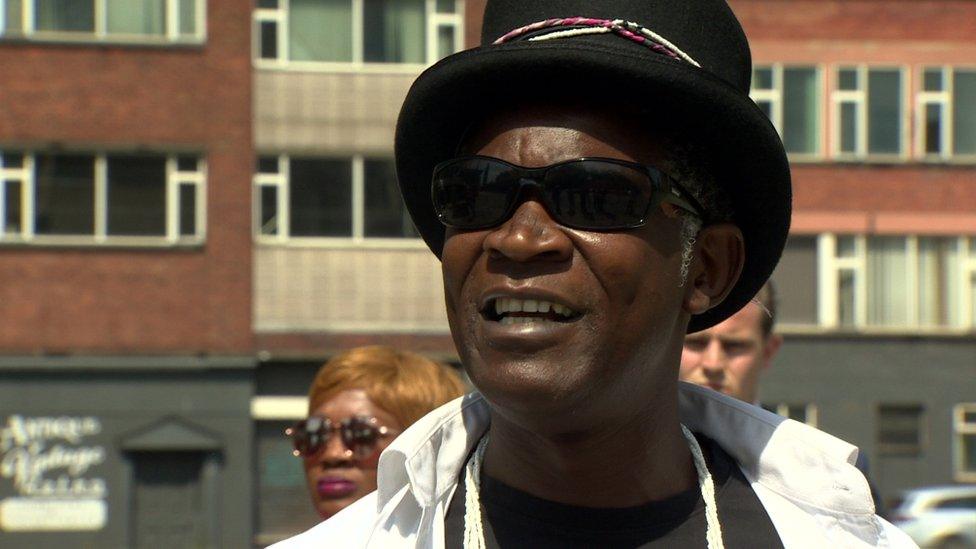
Cuthbert Tura Arutura says the PPS has shown "we were right all along"
Darragh Mackin, from Phoenix Law, said the decision vindicated his clients and "the right to protest generally".
He called on the chief constable to apologise to those who had been put through "almost a year of torment for simply exercising their fundamental right to protest."
Cuthbert Tura Arutura told BBC News NI he was pleased with the decision.
"What today represents for the BLM movement is that we were right all along and the way we were treated was unfair and discriminatory," he said
"This hostile environment for people of colour has to stop," he added.
Sipho Sibanda told BBC News NI it felt like a "load of bad energy has been lifted off my shoulders".
"I am glowing" she added.
She said that on the day of the protests in 2020 it had been a cold day and one year later "it's a nice bright day and full of hope".
She said that the incident had brought out "institutional racism".
She said she was looking forward to showing her children the letter and would continue to demonstrate "for their future."
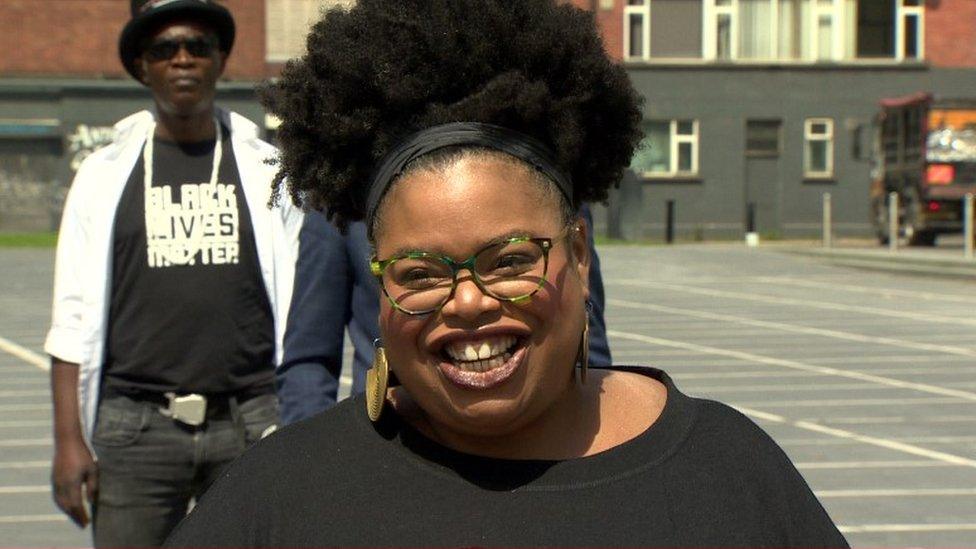
Willetta Gabriel says she is thankful for justice
"Today we got justice and I am so thankful for that," Willetta Gabriel told BBC News NI.
"The decision not to prosecute is a weight lifted off our shoulders as people of colour we often carry such a weight of trauma," she added.
Ivanka Antova, from United Against Racism, said she was delighted no one was going to be prosecuted.
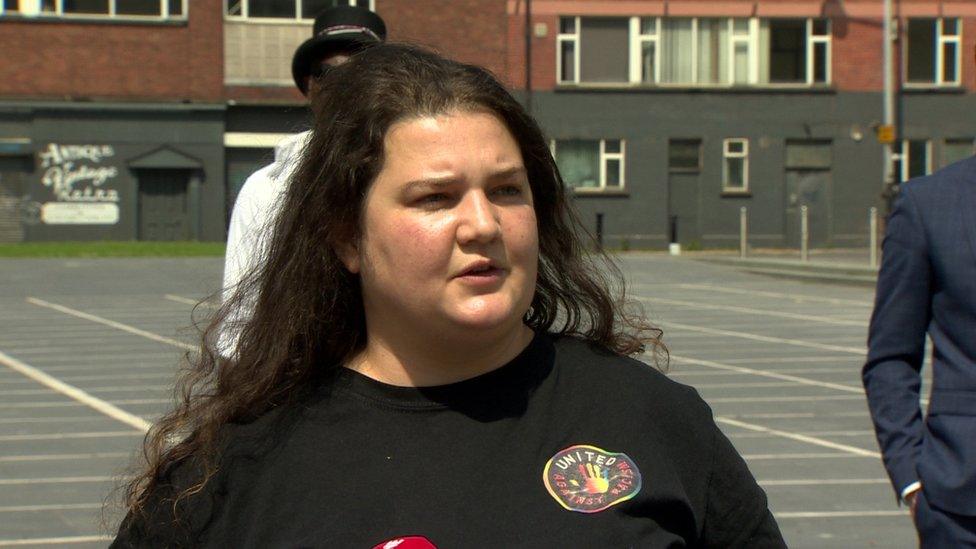
Ivanka Antova said there had been an element of discrimination in the way the matter had been handled
"We don't think we should have been referred for prosecution and that exposes the blatant discrimination that took place," she said.
The PPS said considerations included:
the potential breadth of the reasonable excuse defence, particularly in relation to the freedom of expression and peaceful assembly
the protests related to a matter of important social concern
protests were organised in a way to minimise the risk of transmission, with organisers putting in place stewards, social distancing markers and providing masks and hand sanitiser
a lack of clarity in coronavirus regulations
issues in relation to the "proportionality and consistency" of the policing approach to different protests
'Policing balance not always right'
PSNI Deputy Chief Constable Mark Hamilton said it had not been "easy or comfortable" to balance public health and the right to protest.
"Our response unintentionally damaged the confidence and trust of the black, Asian and minority ethnic community," he said.
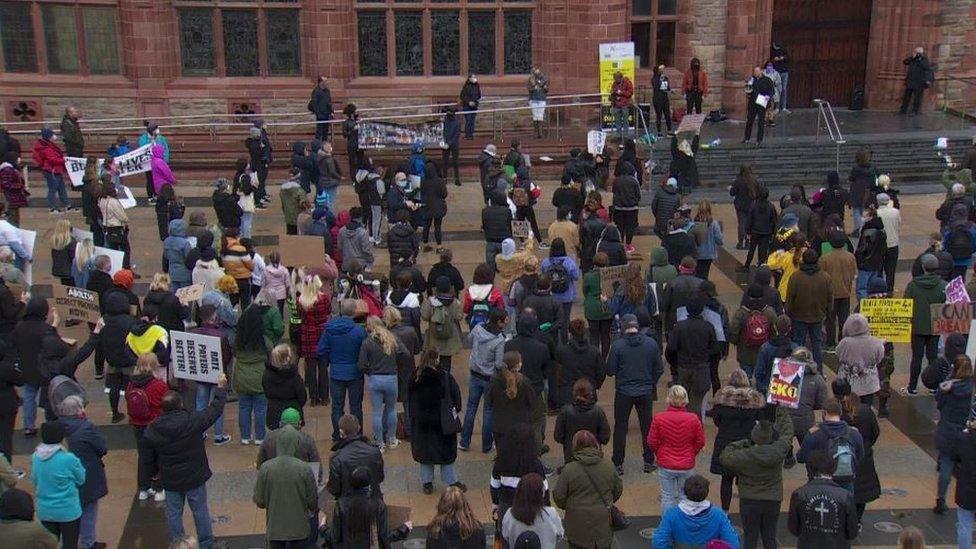
PSNI officers issued 57 fines under Covid-19 rules at a Black Lives Matter protest in Derry last June
"The chief constable has apologised for the anger, upset and frustration caused by our policing operation, and I would like to repeat that apology."
He said the decision by the PPS "underlines yet again the difficulties" the force had in policing during the coronavirus pandemic, with officers dealing with "an unprecedented health crisis and rapidly changing, ambiguous legislation".
"Our objective has always been to help slow the spread of the virus to keep people safe," he said.
"Balancing this against our obligation to safeguard other important rights - such as that to peacefully protest - has not been easy or comfortable.
"We have not always got that balance right."
'Right to protest'
Lilian Seenoi-Barr, who organised the protest at Derry's Guildhall Square, said the PPS decision vindicated the protesters.
"We knew from the outset that we had a human right to protest, a human right that was breached by the PSNI," she told BBC Radio Foyle.
Organisers had gone to great length, she said, to ensure the protest could take place with the required public health measures.
She said: "What the PSNI did that day was disrupt the effort that we had put in place.
"We followed all the regulations and then what happened? We were criminalised."
- Published26 May 2021
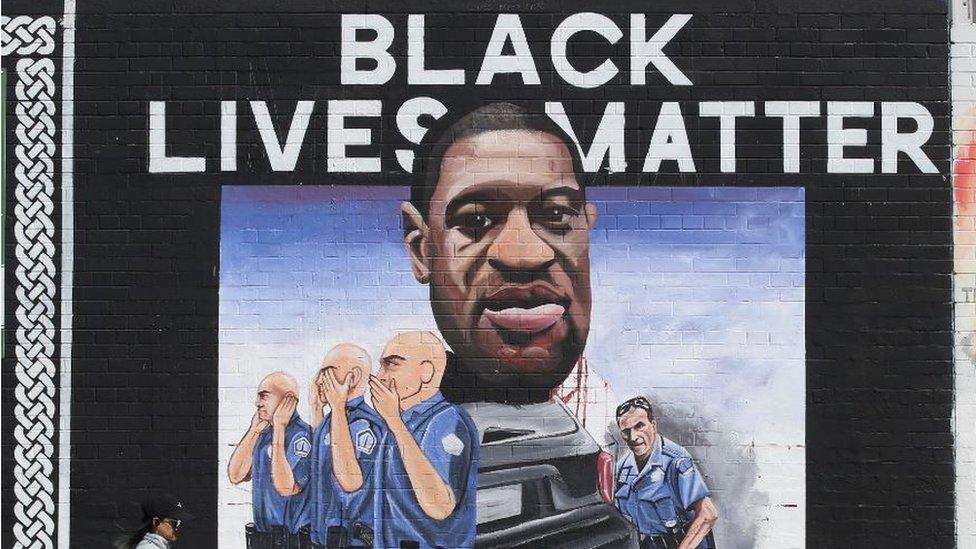
- Published22 December 2020
